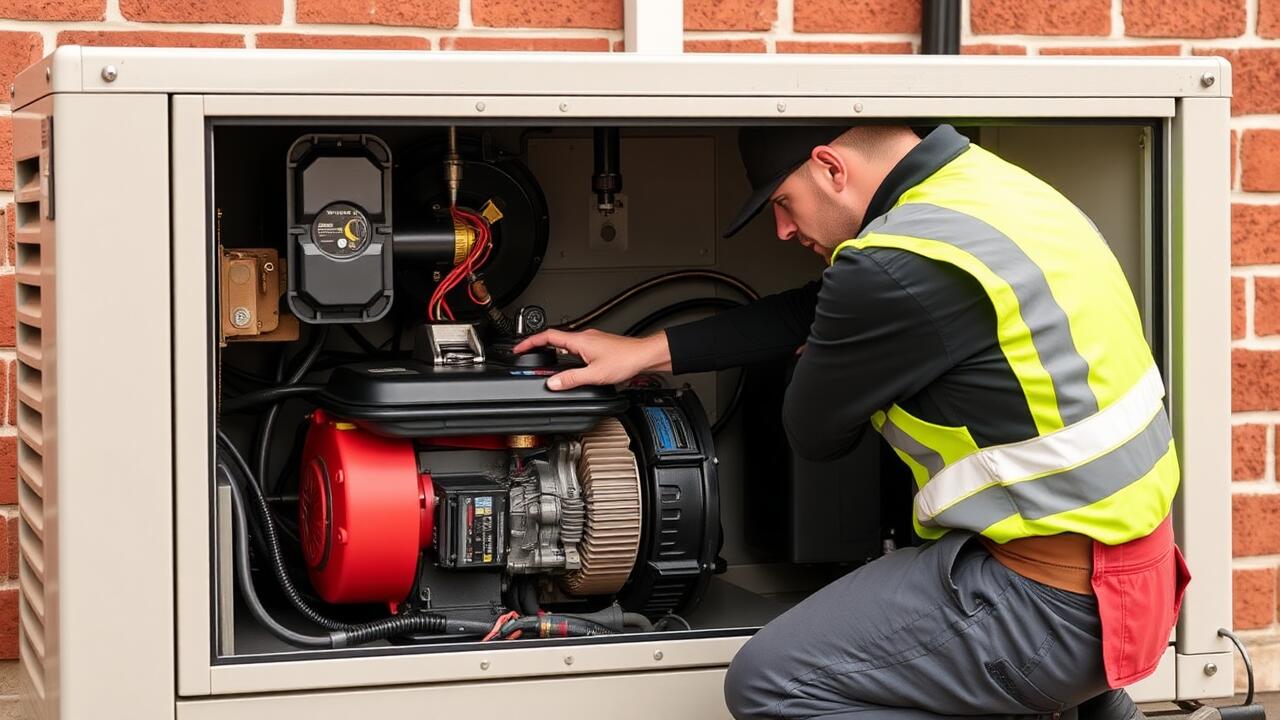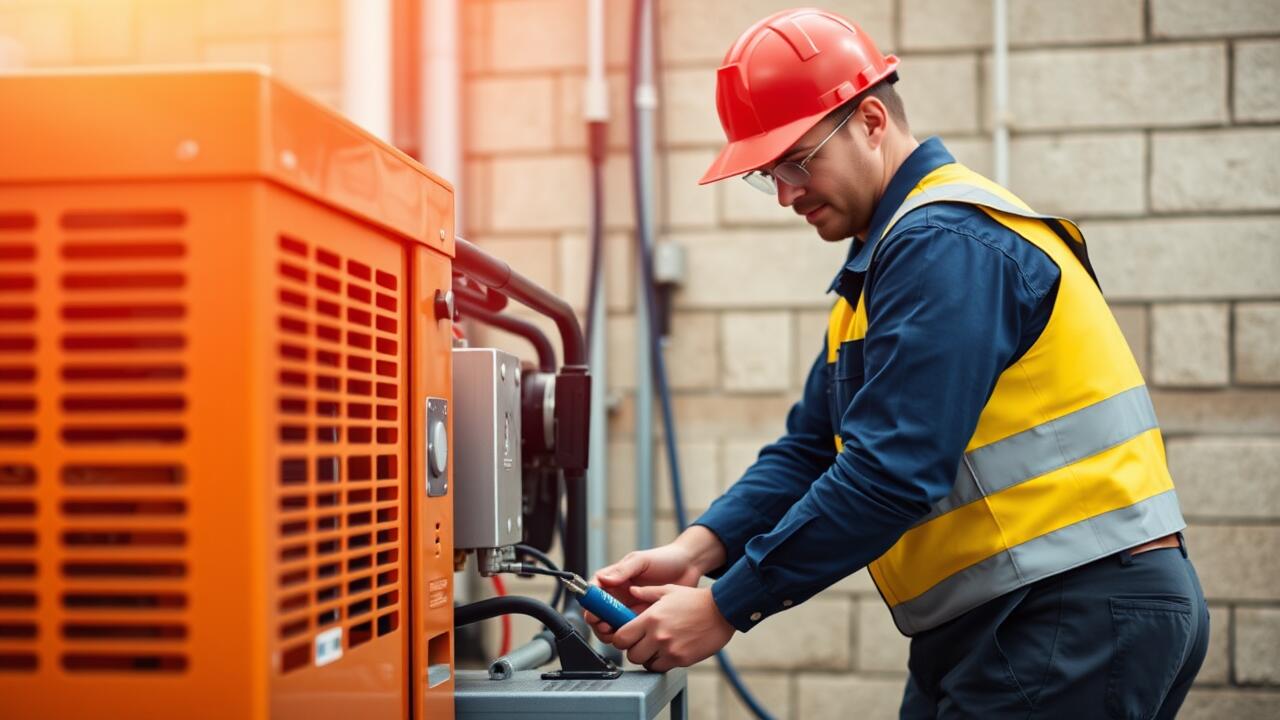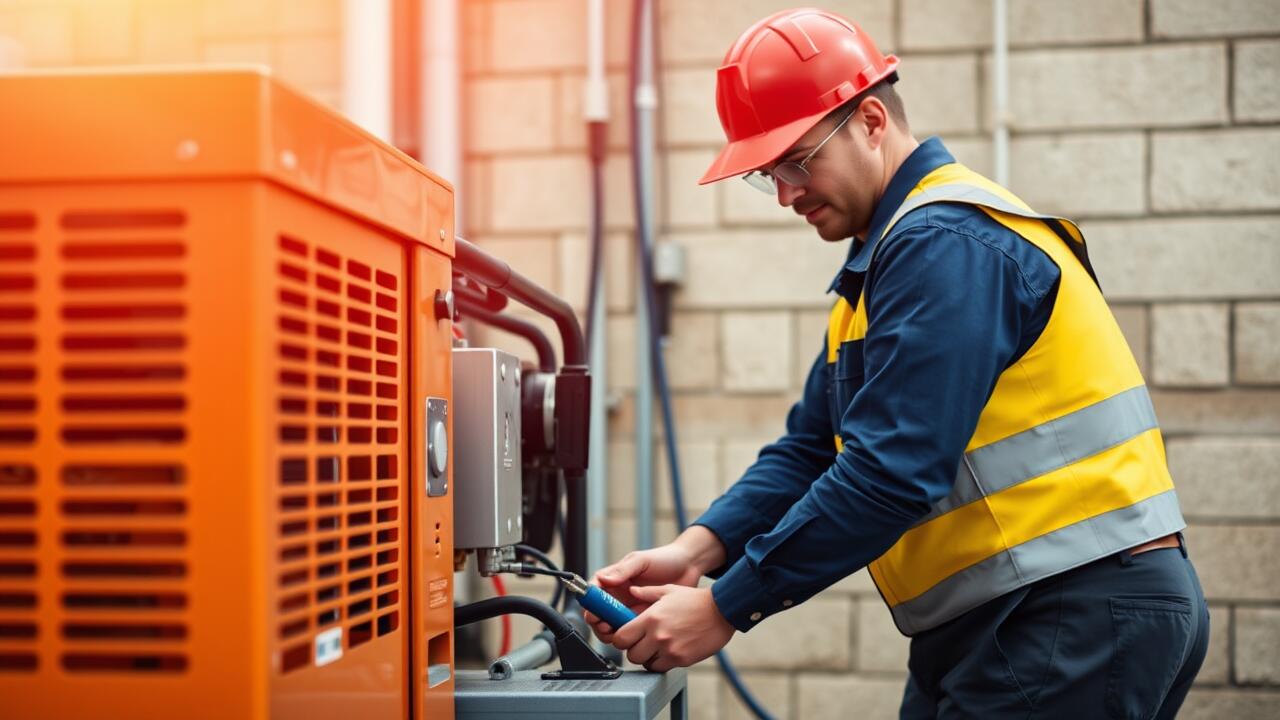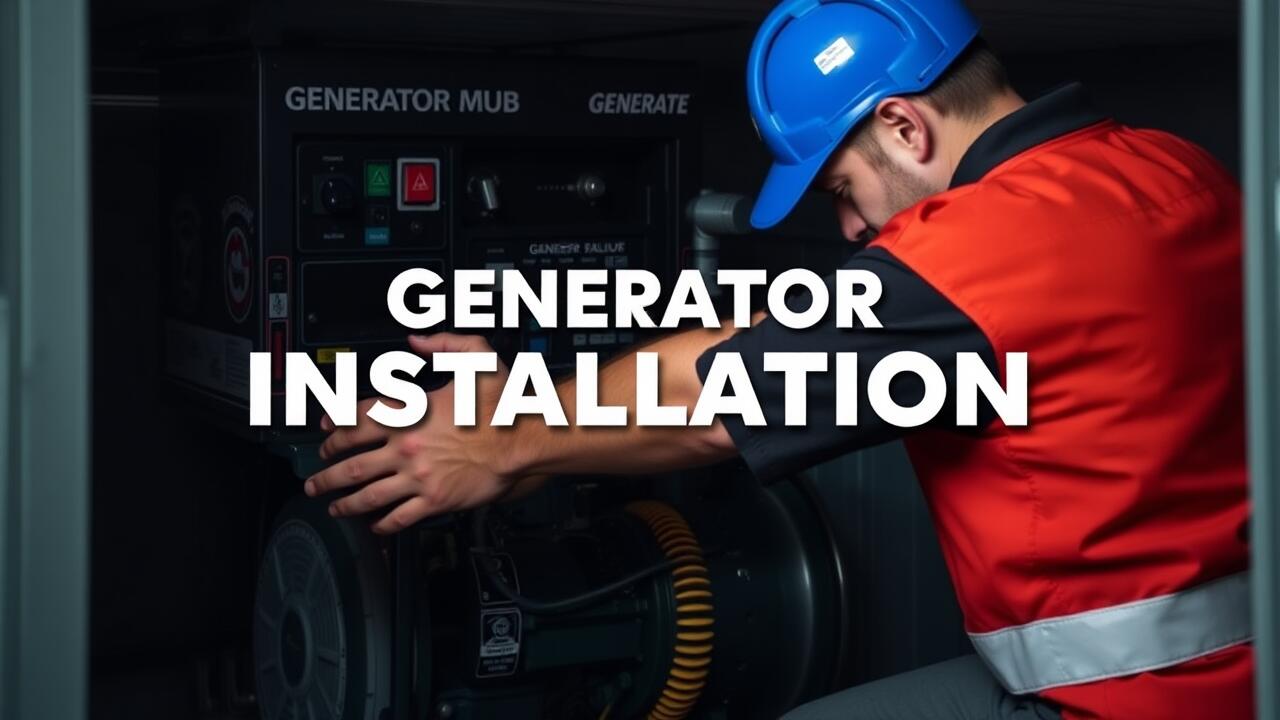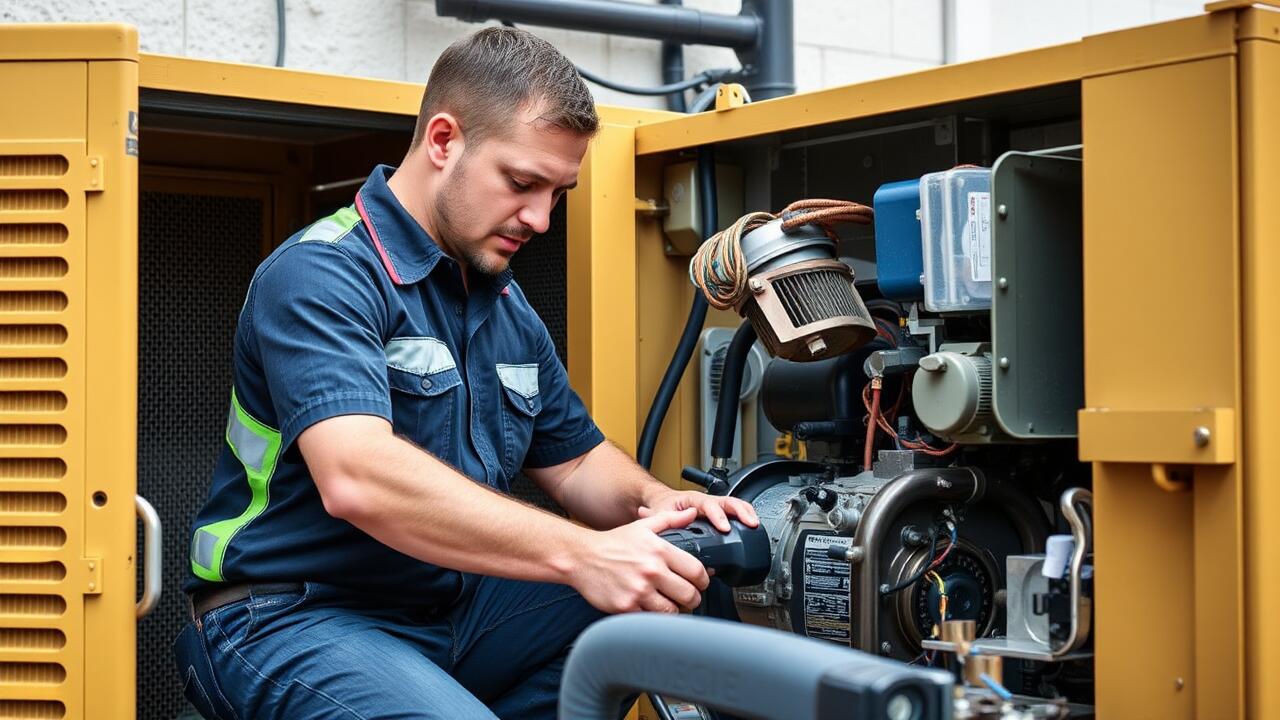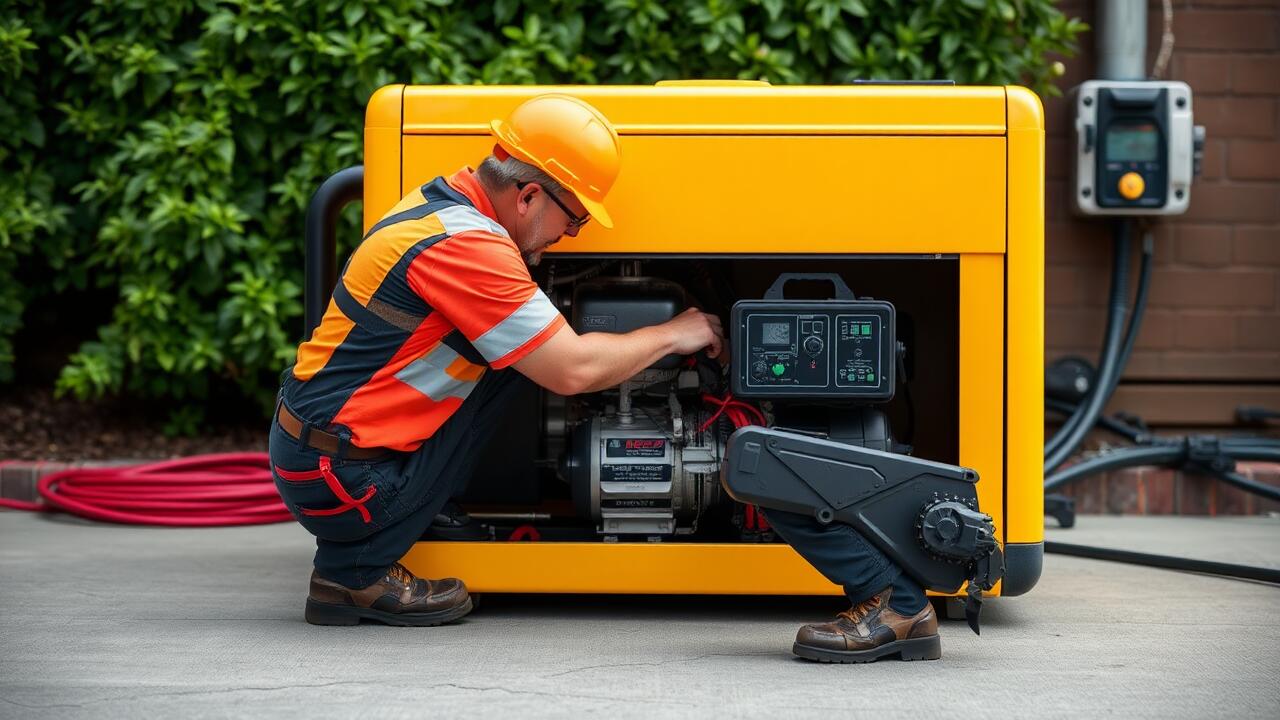
Permits and Regulations
Installing a generator often involves navigating a landscape of permits and regulations that can significantly impact both timelines and costs. Local governments typically require permits to ensure compliance with safety standards and building codes. These regulations are in place to protect homeowners and communities from potential hazards associated with generator installations. In areas like Gulfton, Houston, generator installation must adhere to specific ordinances, which can vary based on the neighborhood and the type of system being installed.
Failure to obtain the necessary permits may lead to fines, additional costs, or delayed project completions. Moreover, working with licensed professionals who are familiar with the regulations in Gulfton can help streamline the installation process. They can ensure that all aspects of the installation meet local codes, avoiding complications that could arise from improper installation or oversight of critical permits.
Local Codes and Compliance Requirements
When considering generator installation, local codes and compliance requirements play a crucial role in determining both the cost and feasibility of the project. Many municipalities, including areas like Gulfton, Houston, have specific regulations that dictate the placement, size, and type of generator that can be installed. These regulations aim to ensure safety and minimize environmental impacts, which means any installation must meet strict criteria set by local authorities.
Homeowners often need to obtain permits before starting the installation process. This can involve several steps, including submitting detailed plans and possibly undergoing inspections for compliance with building and electrical codes. The costs associated with obtaining these permits can vary significantly depending on the locality. For instance, in Gulfton, Houston Generator Installation might require additional documentation or compliance checks that could increase the overall expense of the project. Navigating these requirements can add complexity to the installation process.
Fuel Source Considerations
When selecting a fuel source for a generator, the choice often hinges on availability and personal preference. Natural gas is frequently the top choice for many homeowners due to its convenience and reliability. It connects directly to existing utility lines, eliminating the need for on-site storage. In areas such as Gulfton, Houston, generator installation often favors natural gas systems, as they tend to provide a steady power supply without the hassle of frequent refueling.
Propane and diesel are also viable options, each presenting their own set of benefits and considerations. Propane systems usually require a storage tank, which might necessitate additional space and logistics for refueling. Diesel generators often have more powerful engines, making them suitable for heavy-duty applications. However, they may come with higher fuel costs and storage concerns. Homeowners should evaluate these factors carefully to determine the best choice for their needs, especially in contexts like Gulfton, where local preferences and resources can significantly influence their decision.
Comparing Natural Gas, Propane, and Diesel
When considering a generator installation, the choice of fuel source plays a significant role in both cost and functionality. Natural gas is often the most convenient and economical option, as it is piped directly to homes and typically offers a stable price point. In contrast, propane requires a storage tank and regular refills, which can lead to additional logistical challenges. Diesel generators are known for their power and reliability, especially in heavy-duty applications, but the fluctuating price of diesel fuel can make them a less predictable choice for ongoing costs.
For residents in areas like Gulfton, Houston, generator installation may involve specific considerations based on local fuel availability and zoning regulations. Homeowners should evaluate their long-term needs and preferences, including factors such as consumption rates and environmental impact. Each fuel option has its advantages and disadvantages. Assessing these carefully can lead to more informed decisions about which system will best serve their energy needs.
Maintenance and Ongoing Costs
Budgeting for the upkeep of a generator is essential for ensuring its reliability and longevity. Regular maintenance tasks include checking the oil level, replacing filters, and testing the battery. If these are neglected, a generator can face operational issues that might lead to costly repairs. In addition to routine maintenance, the cost of any necessary repairs should be factored into the overall budget. Homeowners should also consider the value of hiring professionals for maintenance work, especially for complex systems where DIY efforts could lead to further complications.
The specific maintenance requirements can vary based on the type of generator installed. Generators fueled by natural gas, propane, or diesel may exhibit different wear patterns, resulting in varied service needs and potential costs. Service providers, particularly those experienced in Gulfton, Houston Generator Installation, can help assess the generator's operational health and guide homeowners on ideal maintenance schedules. Understanding these ongoing costs can prevent budgetary surprises and ensure that the generator remains a dependable source of power in emergencies.
Budgeting for Upkeep and Service
Planning for the ongoing maintenance and service of a generator is crucial for ensuring its reliability and longevity. Regular servicing can help prevent unexpected breakdowns and costly repairs. This often includes routine inspections, oil changes, and replacing filters to keep the system running smoothly. When budgeting for upkeep, it’s important to account for both scheduled maintenance and potential emergency repairs.
In areas like Gulfton, Houston, generator installation costs can be influenced by the local demand for service providers. This can affect the pricing of parts and labor. Homeowners should consider establishing a relationship with a local technician for inspections and repairs, which can further help in managing costs. Additionally, maintaining a budget specifically for these services can alleviate financial strain during unforeseen circumstances when a generator is needed most.
FAQS
Why do I need permits for generator installation?
Permits are required to ensure that the installation complies with local codes and safety regulations, which helps to protect both the user and the surrounding community.
How do local codes affect the cost of installing a generator?
Local codes can dictate specific requirements for installation, including permits, inspections, and compliance with safety standards, which can increase the overall cost of the project.
What factors should I consider when choosing a fuel source for my generator?
When selecting a fuel source, consider factors such as availability, cost, efficiency, and environmental impact. Each option—natural gas, propane, or diesel—has its own benefits and drawbacks.
What ongoing costs should I budget for after installing a generator?
Ongoing costs may include fuel, regular maintenance, inspections, and any necessary repairs. It's important to factor these into your overall budget to ensure your generator remains functional.
Can I install a generator myself to save on costs?
While it may be tempting to install a generator yourself, it's generally recommended to hire a professional to ensure proper installation, compliance with codes, and safety, which can ultimately save you money in the long run.
